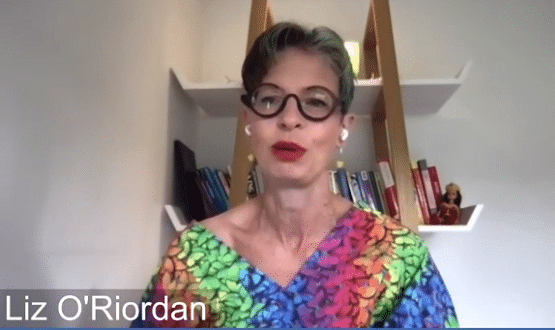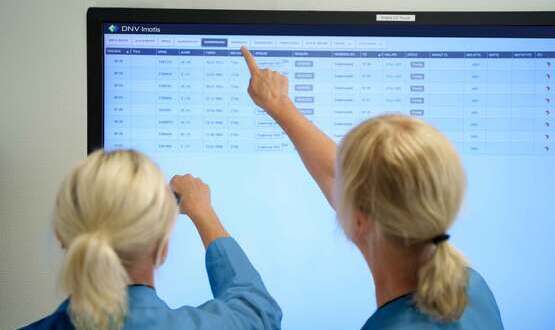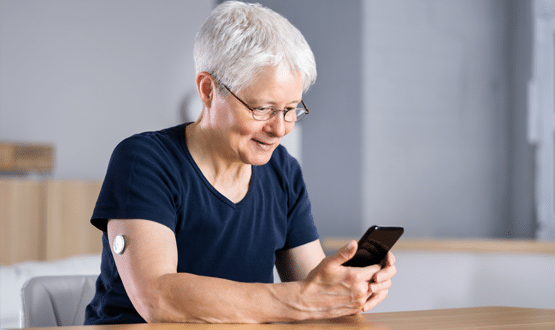‘Tech saved my life’ – Liz O’Riordan’s keynote at Virtual Summer School

When consultant breast surgeon Liz O’Riordan was diagnosed with breast cancer, she turned to technology so she would not “have to go through cancer alone”.
O’Riordan’s powerful opening speech at this year’s Digital Health Virtual Summer School (VSS) was a reminder that technology isn’t just a tool to benefit clinicians, it’s also a tool to empower patients.
In 2015, O’Riordan was diagnosed with stage three breast cancer and underwent nine months of chemotherapy, radiotherapy and surgery. During that time she didn’t meet another breast cancer patient “in the flesh” but turned to technology which she said “saved my life”.
“For me, technology ensured that I didn’t have to go through cancer alone,” she told the VSS audience.
“It’s a really scary place when you’re going through a cancer diagnosis and unless you’ve had cancer you can’t understand what it’s like.
“I didn’t meet another breast cancer patient in the flesh through my nine months of chemo, surgery and radiotherapy, it was through Twitter.
“I told Twitter I had cancer and they reached out to me.”
O’Riordan, who has since retired as a consultant breast surgeon after a recurrence in 2018, said digital health can “dramatically change” the doctor, patient relationship.
She encouraged the audience to see digital health as a “proactivity driver”.
“Technology is changing patients lives and, like me, it’s helping many become an expert patient.
“You can also use digital health to help patients help themselves, through self-monitoring. It means you, as a clinician, get accurate reliable data, which is so important for trials and studies.”
Access to information
But with technology and the ability to empower the patient comes the need to share information, O’Riordan explained.
Speaking of her own frustrations of not being able to see her full test results when going through cancer, she said patients need access to their own data.
“To empower a patient, they need access to information and knowledge, accurate medical information so they can make their own mind up,” she said.
“They also need access to their health teams. By being able to email them and talk, you can reduce the burden of admission, reduce clinic visits that could be solved in a quick email. They also need access to their own data.
“As a doctor I thought I should control how much information patients got about their results. I knew what was good for them, they wouldn’t understand the scary terms.
“But as a patient I wanted to know everything, I deserved to know everything. If I didn’t understand it I’d Google it… it’s my body, it’s my data.”
Patient portals are making it easier for patients to access their data, O’Riordan added, but more needs to be done to build the relationship of trust to reassure patients that doctors are using their data safely, and access to their data will help them.
‘Don’t do to, do with’
O’Riordan’s opening keynote was followed by Professor Mary Dixon-Woods, director of The Healthcare Improvement Studies Institute, and Tara Donnelly, chief digital officer at NHSX.
Dixon-Woods reiterated the need to empower patients with technology, adding that digital tools should be designed with the users in mind.
“Don’t assume you know what’s best, design together and be guided by a highly participatory, inclusive ethos,” she said.
Dixon-Woods added that “collaboration is key” when designing and implementing technology in healthcare.
Donnelly provided the VSS audience with an update on NHSX’s work during the pandemic, including myriad of work around remote monitoring.
“This is much more than virtual consultations,” she said.
Giving examples of patients who have engaged with remote monitoring services and managed their health without being admitted to hospital, Donnelly added that it gave patients peace of mind.
“Rather than digital feeling more remote, here it was really offering people a reassurance they were being observed while in their own home,” she said.
“Liz spoke about the need for digital health to be a proactivity driver, and handing people responsibility back for their own health and giving them information that can help with that is critical.”
Liz O’Riordan recently took part in an episode of Digital Health Unplugged looking at the importance of including patients in the digital journey. The episode will be published on July 27.
The Digital Health Summer School 2021 is taking place on July 15 and 16. The free virtual event is exclusive to NHS and Public sector members of the Digital Health Networks only.




